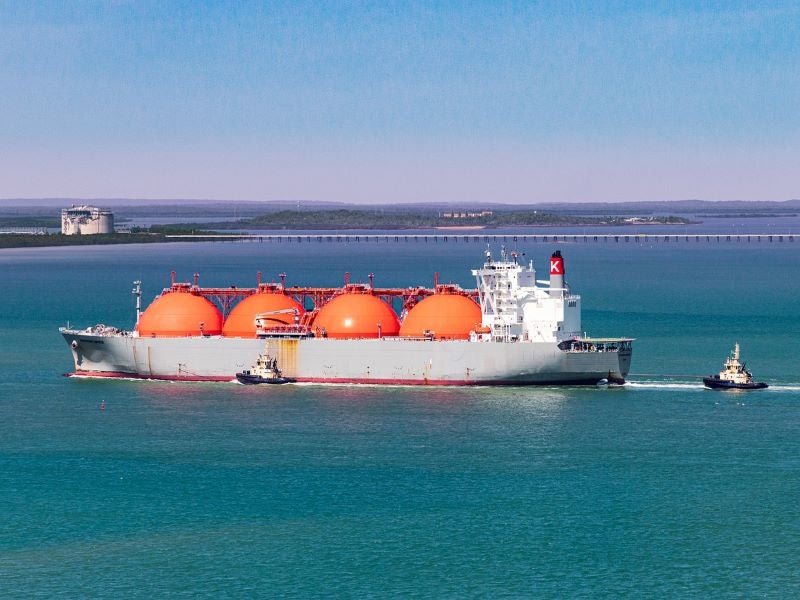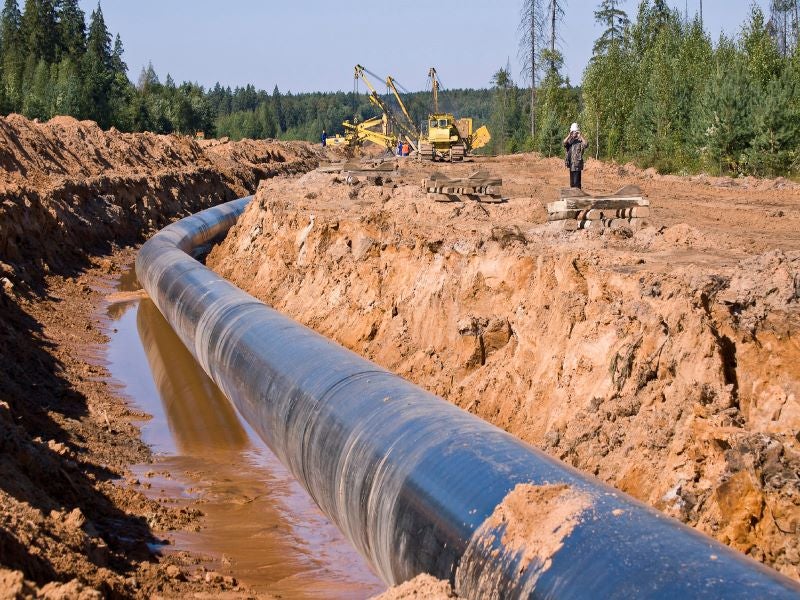The Alexandroupolis Independent Natural Gas System (INGS) is a floating liquefied natural gas (FLNG) import terminal being developed near Alexandroupolis, Greece.
Gastrade, a utility company based in Greece, is developing and will operate the 5.5 billion cubic metres a year (bcm/y) LNG import and regasification project. The company has secured offtake contracts for half of the terminal’s design regasification capacity.
Alexandroupolis INGS will comprise a floating storage and regasification unit (FSRU) and 28km of subsea and onshore pipelines to connect with the National Natural Gas System (NNGS) of Greece.
Gastrade made a final investment decision (FID) in January 2022 and expects to commence operations of the project by the end of 2023.
Alexandroupolis INGS has been recognised as a Project of Common Interest (PCI) by the European Commission (EC). It is considered as a project of strategic importance to contribute to the energy security of Greece as well as other southeast European countries including Bulgaria, Romania and Serbia, and diversify gas supply the region by procuring LNG from countries such as the US, Egypt, Qatar and Algeria.
Gastrade shareholders
Gastrade has five shareholders, each of which owns 20% stake. They include Asimina‐Eleni Copelouzos of Greece-based Copelouzos Group, Greek LNG shipping company GasLog, Greek gas utility DEPA, Hellenic Gas Transmission System Operator (DESFA), and Bulgartransgaz, the operator of the national natural gas transmission and storage system of Bulgaria.
Project funding
The European Commission approved €166.7m ($201.6m) public funding for the Alexandroupolis LNG import terminal project under the European Union (EU) State aid rules in June 2021.
Alexandroupolis INGS LNG terminal location
The Alexandroupolis FSRU will be stationed in 40m-deep waters of the Thracian Sea, 17.6km south-west of the port of Alexandroupolis in northern Greece.
Alexandroupolis FSRU details
The FSRU will be permanently anchored to the seabed using a turret-based mooring system, which will enable the floating unit to rotate by 360o depending on the direction of the sea currents and waves.
LNG will be transferred from LNG carriers through the loading arms of the FSRU. The Alexandroupolis FSRU will have four LNG storage tanks of 170,000m3 combined storage capacity and four regasification units of 400m3/h capacity each.
The regasified natural gas from the FSRU will flow through two 14in-diameter flexible risers to a pipeline end manifold (PLEM) on the seabed for transmission through a subsea gas pipeline.
Alexandroupolis INGS pipeline details
The LNG import project will include a 30in-diameter and 28km-long pipeline to transport natural gas from the FSRU to the Kipi-Komotini branch of the NNGS gas transmission system of Greece.
DESFA, which owns NNGS, will construct and operate a new metering and regulating station at the connection point at Amphitriti village, 5.5km north-east of Alexandroupolis.
The subsea section of the pipeline originating from the Alexandroupolis FSRU will run for 24km, whereas the onshore section will measure 4km long.
Contractors and key players involved
Wood Group was awarded the front-end engineering design (FEED) contract for the Alexandroupolis INGS project in March 2017. The EU’s Connecting Europe Facility (CEF) provided 50% funding for the FEED study, which was completed in September 2017.
BMT, an international maritime technology consulting firm headquartered in the UK, and Australia-based Metocean Services International (MSI) were jointly contracted to deploy an environmental monitoring system (EMS) and develop the metocean criteria report for the project in January 2018.
GasLog is responsible to convert one of its fleet vessels to FSRU for the Alexandroupolis LNG import project. It will also provide operations and maintenance services for the FSRU under an agreement signed in February 2018.





